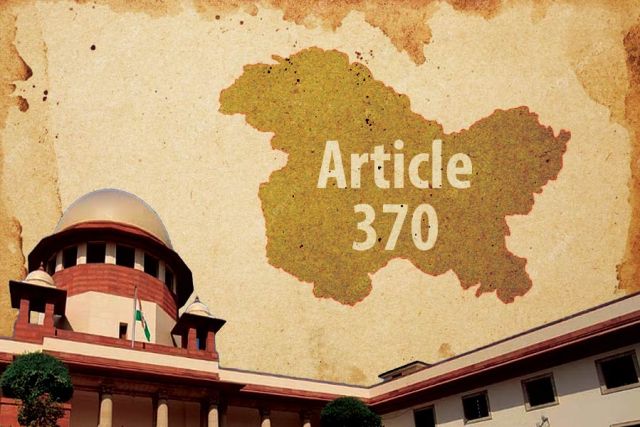Welcome to Akarsh Mathur & Associates
EXPERIENCE
A distinguished law firm based in Jaipur, Rajasthan. With our unwavering commitment to excellence, we provide comprehensive legal solutions to clients across a wide range of practice areas. Led by Akarsh Mathur, an accomplished High Court Lawyer and Corporate Law Specialist, our firm is dedicated to delivering exceptional results and upholding the highest standards of professionalism.
OUR PRACTICE AREAS
The Indian civil law system draws inspiration from various sources, including statutory laws, judicial precedents, and customary practices. It is influenced by both indigenous laws and principles of equity and justice. The overarching legislations that govern civil matters in India include the Indian Contract Act, the Indian Succession Act, the Indian Penal Code, the Indian Evidence Act, and the Code of Civil Procedure, among others.
The objective of Indian civil law is to provide a fair and just resolution to conflicts and disputes between parties, while upholding the rights and obligations of individuals in various aspects of their lives. It establishes a framework for enforcing contracts, protecting property rights, resolving family disputes, seeking remedies for civil wrongs, and ensuring access to justice for all.
Indian civil law covers a wide range of areas, including but not limited to:
- Contract Law: Governs agreements and obligations between parties, including formation, performance, breach, and remedies for contractual disputes.
- Property Law: Deals with the acquisition, ownership, and transfer of property rights, including land, real estate, and intellectual property.
- Family Law: Encompasses laws related to marriage, divorce, adoption, inheritance, and guardianship.
- Tort Law: Addresses civil wrongs or injuries caused by one party to another, such as negligence, defamation, trespass, and nuisance.
- Consumer Protection: Provides legal protections to consumers in relation to goods, services, and unfair trade practices.
- Civil Procedure: Establishes the rules and procedures for conducting civil lawsuits, including filing of suits, evidence presentation, and dispute resolution mechanisms.
Indian criminal law encompasses a wide range of offenses, including but not limited to murder, theft, assault, rape, fraud, corruption, drug offenses, cybercrimes, and terrorism-related offenses. The penalties for these offenses vary depending on the severity of the crime, ranging from fines and imprisonment to capital punishment.
Understanding Indian criminal law is crucial for individuals, law enforcement agencies, legal professionals, and the general public to ensure compliance with the law, protect rights, and seek justice. Legal advice and representation are essential for accused persons to navigate the criminal justice system, present a defense, and safeguard their interests during criminal proceedings.
It is important to note that criminal law in India recognizes certain defenses and exceptions that can mitigate or absolve an accused person’s liability. These include self-defense, insanity, mistake of fact, and duress, among others. Additionally, there are provisions for anticipatory bail, bail, and the right to legal representation to ensure fairness in the criminal justice system.
The tax administration in India is primarily managed by the Central Board of Direct Taxes (CBDT) for direct taxes and the Central Board of Indirect Taxes and Customs (CBIC) for indirect taxes. These authorities are responsible for formulating tax policies, enforcing tax laws, and collecting tax revenue.
Tax compliance in India is a crucial aspect for individuals and businesses to ensure adherence to tax laws, maintain accurate financial records, file tax returns within specified timelines, and pay taxes due on time. Failure to comply with tax laws can result in penalties, fines, and legal consequences.
Understanding Indian tax law is essential for taxpayers, including individuals, businesses, and tax professionals, to fulfill their tax obligations, make informed financial decisions, and effectively manage their tax liabilities. Seeking advice from tax experts and staying updated with changes in tax laws and regulations is important to ensure compliance and mitigate any potential tax risks.
The primary legislation governing labor laws in India is the Industrial Disputes Act, 1947. It covers aspects such as the resolution of industrial disputes, layoff and retrenchment of workers, and the establishment of industrial tribunals and labor courts. Additionally, there are several other laws that regulate specific aspects of labor relations, such as the Factories Act, the Minimum Wages Act, the Employees’ Provident Funds and Miscellaneous Provisions Act, and the Maternity Benefit Act, among others
The Indian labor law framework covers a wide range of areas, including but not limited to:
- Employment Contracts: It establishes the legal relationship between employers and employees, ensuring fair employment terms, non-discrimination, and protection against exploitation.
- Wages and Working Hours: It regulates minimum wages, overtime pay, working hours, leave entitlements, and other aspects related to the compensation of workers.
- Social Security: It provides for social security measures such as provident funds, employee insurance schemes, and pension schemes to ensure financial protection for workers.
- Health and Safety: It mandates safety standards in workplaces, including provisions related to occupational health, safety measures, and welfare facilities for workers.
- Industrial Relations: It governs the formation and functioning of trade unions, collective bargaining, and the settlement of industrial disputes.
- Child and Forced Labor: It prohibits child labor and forced labor, ensuring the protection and welfare of children and vulnerable workers.
Intellectual property (IP) law in India refers to the legal framework that governs the protection and enforcement of intellectual property rights. It includes laws, regulations, and judicial decisions aimed at safeguarding various forms of intellectual property, such as inventions, trademarks, copyrights, and designs.
The primary legislation governing intellectual property in India includes the following acts:
- The Patents Act, 1970: This act governs the registration, grant, and protection of patents, which provide exclusive rights to inventors for their inventions.
- The Copyright Act, 1957: This act protects original literary, artistic, musical, and cinematographic works, as well as computer software. It provides creators with exclusive rights over their works.
- The Trademarks Act, 1999: This act regulates the registration and protection of trademarks, which are distinctive signs used to distinguish goods or services of one entity from those of others.
- The Designs Act, 2000: This act provides for the registration and protection of industrial designs, which protect the visual appearance of a product.
- The Geographical Indications of Goods (Registration and Protection) Act, 1999: This act protects the geographical indications (GIs) of goods, which are indications that identify a product as originating from a particular territory and possessing certain qualities or reputation due to its geographical origin.
- The Semiconductor Integrated Circuits Layout-Design Act, 2000: This act protects the layout designs of integrated circuits.
Our market‑leading finance practice devises efficient and business‑oriented financing structures to meet clients’ most important capital‑raising needs. While not every matter requires complex, multicurrency, multijurisdictional financings, our private equity clients benefit from our lawyers’ deep expertise with the latest market trends and innovative financing techniques
Indian Constitutional law refers to the body of laws, principles, and rules that govern the interpretation, implementation, and functioning of the Constitution of India. The Constitution of India, adopted on January 26, 1950, is the supreme law of the land and serves as the fundamental legal document that establishes the structure, powers, and functions of the Indian government, as well as the rights and responsibilities of its citizens.
Key features of Indian Constitutional law include:
- Written Constitution: The Constitution of India is a written document that lays down the framework of governance, defines the powers and responsibilities of the three branches of government (legislature, executive, and judiciary), and enshrines the fundamental rights and freedoms of individuals.
- Federal System: India has a federal system of government, where powers are divided between the central government and the state governments. The Constitution outlines the distribution of powers and responsibilities between these entities.
- Fundamental Rights: The Indian Constitution guarantees fundamental rights to its citizens, such as the right to equality, freedom of speech and expression, protection against discrimination, right to life and personal liberty, and right to constitutional remedies.
- Directive Principles of State Policy: The Constitution includes directive principles that provide guidelines for the government to promote social justice, equality, and the welfare of the people. Although not legally enforceable, these principles guide the formulation of laws and policies.
- Independent Judiciary: The Constitution establishes an independent judiciary as a guardian of the Constitution and the protector of individual rights. The judiciary has the power of judicial review to ensure the constitutionality of laws and actions of the government.
- Amendment Process: The Constitution provides for the amendment process, enabling changes to be made over time to meet the evolving needs of the nation. Amendments to the Constitution require a special majority of the Parliament.
Indian Constitutional law covers a wide range of areas, including but not limited to:
- Fundamental rights and freedoms
- Structure and functioning of the government
- Powers and functions of the President, Prime Minister, and other government officials
- State governments and their relationship with the central government
- Judicial system and the role of the judiciary
- Emergency provisions
- Elections and electoral systems
- Citizenship
- Protection of minorities and marginalized communities
- Scheduled Castes and Scheduled Tribes
- Public interest litigation
Our market‑leading finance practice devises efficient and business‑oriented financing structures to meet clients’ most important capital‑raising needs. While not every matter requires complex, multicurrency, multijurisdictional financings, our private equity clients benefit from our lawyers’ deep expertise with the latest market trends and innovative financing techniques
Administrative law in India encompasses a wide range of areas, including public administration, regulatory bodies, administrative tribunals, public service, delegated legislation, judicial review, and principles of natural justice.
One of the essential features of Indian administrative law is the principle of judicial review. The judiciary plays a crucial role in ensuring that administrative actions are lawful, fair, and reasonable. Courts have the power to review administrative decisions, actions, or omissions to determine their legality, procedural correctness, and adherence to constitutional principles.
Key features of Indian administrative law include:
- Constitutional Basis: The Indian Constitution provides the foundational principles and framework for administrative law in India. It sets out the distribution of powers between the central government and the states, as well as the fundamental rights and duties of citizens.
- Administrative Tribunals: India has established specialized administrative tribunals to deal with disputes and grievances arising from administrative actions. These tribunals have jurisdiction over specific areas such as taxation, employment, and land disputes, and provide an alternative forum for redressal instead of approaching regular courts.
- Judicial Review: The Indian judiciary plays a vital role in administrative law. The courts exercise the power of judicial review to ensure that administrative actions are lawful, fair, and reasonable. Judicial review allows individuals and entities to challenge administrative decisions, actions, or omissions that are illegal, arbitrary, or violative of their rights.
- Administrative Procedure: Administrative law in India lays down procedures that public authorities must follow while making decisions or taking actions. These procedures aim to ensure fairness, transparency, and accountability in administrative processes. They include principles of natural justice, such as the right to be heard, the right to a fair hearing, and the right to impartiality.
- Principles of Natural Justice: The principles of natural justice, including audi alteram partem (hear the other side) and nemo judex in causa sua (no one should be a judge in their own case), are an integral part of Indian administrative law. These principles safeguard the rights of individuals and provide a mechanism for challenging administrative decisions.
- Right to Information: The Right to Information Act, 2005, enables citizens to access information held by public authorities, promoting transparency and accountability in administration. It allows individuals to obtain information about government decisions, actions, and policies, subject to certain exceptions.
- Administrative Discretion: Administrative law recognizes the importance of administrative discretion, which grants public authorities the power to make decisions based on their expertise and judgment. However, this discretion must be exercised within the limits set by law and subject to judicial review.
- Public Interest Litigation: Public Interest Litigation (PIL) is a mechanism that allows individuals or organizations to approach the courts on behalf of the public interest. PIL has been instrumental in addressing administrative failures, promoting good governance, and protecting the rights of marginalized groups.
Our market‑leading finance practice devises efficient and business‑oriented financing structures to meet clients’ most important capital‑raising needs. While not every matter requires complex, multicurrency, multijurisdictional financings, our private equity clients benefit from our lawyers’ deep expertise with the latest market trends and innovative financing techniques
Expertise That Transcends Boundaries
At Akarsh Mathur & Associates, we pride ourselves on our diverse range of legal expertise. From high-stakes litigations to corporate law matters, NCLT and DRT proceedings, contract negotiations, and regulatory compliance, our team has the depth and breadth of knowledge to handle even the most complex legal challenges. With a client-centric approach, we tailor our services to meet the specific needs of each client, ensuring their interests are protected at every step.

Get all the advantages
Unyielding Commitment to Client Success
Our clients’ success is at the heart of everything we do. We understand that legal matters can be daunting, which is why we provide personalized attention and support to our clients throughout their legal journey. With our in-depth understanding of the law and sharp analytical skills, we craft innovative strategies to achieve optimal outcomes. Whether you are an individual, a small business, or a large corporation, we are dedicated to achieving justice and securing your best interests.
Unparalleled Experience
and Track Record
With over 5 years of experience, Akarsh Mathur has earned a reputation as a tenacious litigator and a trusted advisor. He has handled a wide array of cases, ranging from civil and criminal disputes to corporate litigations, with a notable track record of successful verdicts and favorable settlements. Having worked with renowned lawyers and gained experience with the Government of India Law Department, Akarsh Mathur brings a wealth of knowledge and insight to every case, ensuring a strategic and effective approach.
Akarsh Mathur
Meet Akarsh Mathur, a highly skilled attorney and the driving force behind Akarsh Mathur & Associates. With a passion for justice and a wealth of legal expertise, Akarsh brings a unique perspective to every case he handles.
Education and Experience: Akarsh earned his Law degree from the prestigious Jindal Global Law School, known for its rigorous academic program and commitment to legal excellence. He is also a proud member of the Rajasthan State Bar, demonstrating his dedication to the legal profession.
OUR CLIENTS
| A Milestone pvt Ltd | Arpit marble pvt Ltd | Cual industries pvt ltd |
| Vs bhandari cold storage pvt Ltd | Mgi infiatech pvt Ltd | Sand dunes construction pvt Ltd |
| Bony buildtech pvt Ltd | Nirmal cars pvt Ltd | Shri shyam madhav polybags pvt Ltd |
| Micas organics Pvt Ltd | Morani motors Pvt Ltd | Ms strong and better enterprises |
| Ms nehata petrofuel supply | Neelgrev traders company limited, Thailand |
latest Articles
Introduction Contracts form the backbone of any successful business. A well-drafted contract in India not only safeguards your interests but…
The December 2023 Supreme Court judgement upholding the abrogation of Article 370 has reignited a decades-old debate, throwing the spotlight…
Contact Us
We are here to assist you with your legal needs. Whether you require legal representation, advice, or guidance, our team is ready to listen and provide tailored solutions. Visit our website or reach out to us via phone or email to schedule a consultation. Let Akarsh Mathur & Associates be your trusted legal partner, dedicated to protecting your rights and achieving the best possible outcomes for your legal matters.
At Akarsh Mathur & Associates, we believe that every client deserves the highest level of legal representation. With our expertise, dedication, and unwavering commitment to our clients, we are ready to tackle the most challenging legal issues and help you navigate the complexities of the legal landscape. Trust us to be your advocates, providing you with the support and guidance you need for a successful resolution.










